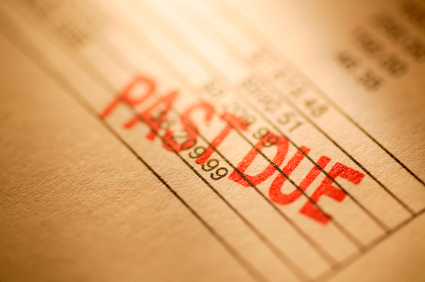
Different Kinds of Bankruptcy
There are several types of bankruptcy but they deal mostly with two kinds of debt: unsecured and secured. Unsecured debt is not backed up (secured) by collateral and includes things like credit card and finance company accounts, medical bills, utility and cell phone accounts, and some kinds of income tax debts. Secured debt has something tangible (collateral) behind it: a car, boat, furniture, some installment purchases, and perhaps biggest of all, your home. Chapter 7 and Chapter 13 bankruptcies, also known as "consumer bankruptcies," have different requirements as well as advantages and disadvantages; a professional should determine which one is best for you.
--Chapter 7: A slightly oversimplified way to think about them is that Chapter 7 is designed to entirely "wipe out" certain kinds of debts In South Carolina about half of consumer bankruptcies are handled under Chapter 13. Under a Chapter 7 bankruptcy, also called liquidation, most unsecured debt can be completely eliminated. This is called a discharge. However, a Chapter 7 bankruptcy does not deal with secured debts, such as car loans, mortgages, etc.
--Chapter 13: This type of bankruptcy suits wage earners (and others with steady sources of income) because it creates a plan for partial repayment of unsecured debts, while also dealing with secured debts (debts with collateral). Chapter 13 is designed to structure repayments over time. Where a family has fallen behind on secured debt accounts, like house and car payments, Chapter 13 generally provides a five year period to "cure" or catch up with the amount that has slipped each month so that creditors are prohibited from foreclosure or repossession and the debtor is protected by the United States Bankruptcy Code from late fees and accruing interest.
To be eligible to file Chapter 13, you must have regular income and must not have debts over certain amounts. If the Bankruptcy Court "confirms" (approves) your Chapter 13 plan, both you and your creditors are obligated to abide by the plan to pay a percentage of your debts (usually 5%) over time (usually five years). The payments are actually made to a trustee who distributes them to the creditors according to the confirmed Plan.
Whether you file Chapter 7 or Chapter 13, you can generally keep most of your property, including bank accounts, clothing and jewelry, and household furniture, and many other kinds of property, up to certain values. You may also typically retain your car and some equity in your home (up to $50,000 per owner) and all of your retirement accounts. These are known as exempt categories. Some debts cannot be discharged, however. You will generally remain responsible for student loans, child support and alimony, criminal restitution, debts incurred through fraud, certain taxes, and a few other kinds of "nondischargeable" debts.
It can be difficult to determine which type of bankruptcy is right for each client. The court is bound by many rules and regulations that must be followed in order to file a case. Only through careful analysis of each client's particular situation and circumstances can we determine which, if any, type of bankruptcy will be successful. In some cases, the timing of filing becomes an important variable. Our experienced professionals, under the guidance of Mr. Fairbanks, can work with you to determine what chapter will best meet your needs and the court's requirements.